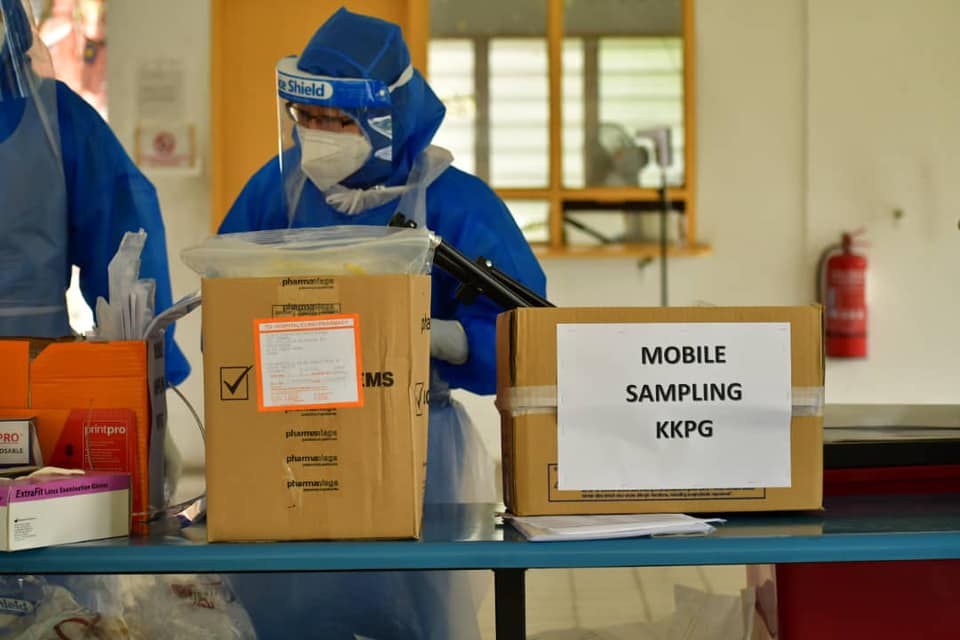KUALA LUMPUR, Nov 11 — Malaysia needs a uniform policy on Covid-19 testing that should apply to all states and at every entry point across the country, an expert said.
Selangor Task Force Operations director and public health specialist Dr Mohammad Farhan Rusli said there has to be a clear pathway on Covid-19 testing, especially as the country plans to move to an endemic phase, instead of making ad-hoc decisions.
Citing the government’s flip-flop Covid-19 testing order for travellers to Langkawi in September, Farhan said such an incidence not only creates confusion among enforcers and the public, but it also creates doubt on whether federal policies are based on scientific data or the popular vote.
“We need a testing strategy that moves in the same direction. This means that in any state [it is the same] — Malaysia is small. I go from Kuala Lumpur to Pahang, it’s different. The quarantine period in Pahang is 14 days, in Selangor, it’s 10 days, and these are neighbouring states. Within half an hour, you can reach another state.
“That is why when we want to have a National Testing Policy, it has to be carried out neatly and accurately,” Dr Farhan said at a September 21 meeting with the Dewan Rakyat health, science and innovation committee, based on meeting transcripts published in the committee’s 634-page “Transitioning from Pandemic to Endemic Covid-19 Safely and Sustainably” report that was tabled in Parliament on November 1.
He gave another example, during a meeting at a hotel in Kuala Lumpur, where guests were not allowed to pray at the prayer room due to orders from the Ministry of Tourism, Arts and Culture (MOTAC), citing close proximity in a congregation. Guests, however, were seated without social distancing at the hotel restaurant.
Farhan also questioned the need for a PCR test upon arrival at entry points like the Kuala Lumpur International Airport (KLIA), which causes unnecessary queues at the airport.
He said in the United Kingdom, travellers are given clear quarantine protocols that would guide them as they enter the country. “If you are vaccinated, you land, and on the second day, you can go to any shop and [buy a] self-test kit for ten pounds.
“If you are not vaccinated, you have to go through a quarantine protocol. It is all laid out and open for people to see so that we know what to do when we go there. So, for our country, we have to detail this properly. If we want to talk about how to implement it, you have to base it on data and science, and you have to go back to RTK saliva [test],” Farhan said.
Baling MP Abdul Azeez Abdul Rahim, who is part of the parliamentary committee, believed that it was still necessary to conduct PCR tests at entry points, especially for travellers arriving from high-risk countries.
“There are now PCR tests that can produce results quickly. We (the country) should get PCR machines that can produce results within a minimum time frame. You can give it to whoever you want, 10 companies at 10 airports? Go ahead. But the product has to be the same. We can’t have BP bringing in one, and then MyEG all having their own. One can produce in two days, another in one day, another in two hours, and now within an hour,” Abdul Azeez said.
Farhan said as Malaysia’s Covid-19 vaccination rate climbs higher, the country has to act as a nation and not let individual states decide on their own testing policies.
“As Malaysia (as a country), do we start testing people who are fully vaccinated? Do we not do this? Do we test only the symptomatic? And this has to be in tandem to all the states to follow.
“Every day we hear that we are going into endemic, going into endemic. But the way we are acting is as if we still want to contain [the virus], like we’re still after this (zero Covid). So, we have to choose. Do you want to contain, or do you want this to be endemic?
“If you want it to be endemic, it has to be treated like an endemic. You can’t be saying that it’s endemic but everything is still strict, you can’t go from Kuala Lumpur to Pahang, when we know that interstate movement is only at 1.7 per cent.
“So, these things, when you don’t streamline them, people on the ground ― because I am on the ground, I am just a regular person, we don’t have trust in the policy,” Farhan said.
Interstate travel was opened on October 11.
Health Minister Khairy Jamaluddin has yet to release the National Testing Strategy for Covid-19. Health, science and innovation committee chairman Dr Kelvin Yii said last Monday that Khairy briefed his committee then about the use of the National Testing Strategy as a guideline for industries and sectors before the country transitions into an endemic Covid-19 phase.







